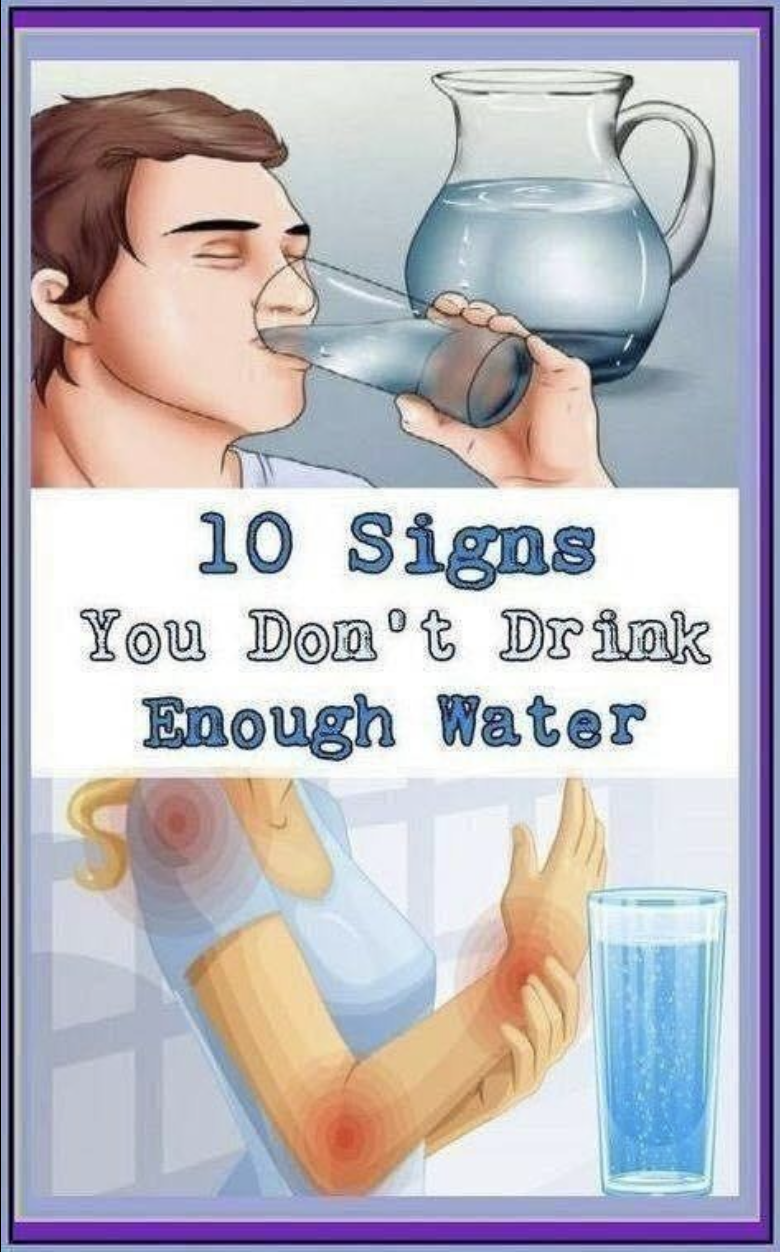3. Fatigue and Low Energy 😴
- Why It Happens: Dehydration reduces blood volume, making your heart work harder to pump oxygen and nutrients to cells, leaving you feeling tired.
- What to Do: Drink a glass of water if you’re feeling unusually sluggish—it might boost your energy levels.
4. Dry Mouth and Bad Breath 😤
- Why It Happens: Saliva production decreases when you’re dehydrated, leading to dry mouth and the growth of odor-causing bacteria.
- What to Do: Sip water frequently to keep your mouth moist and promote saliva production.
5. Frequent Headaches or Migraines 🤕
- Why It Happens: Dehydration can cause brain shrinkage (temporary) and reduced blood flow to the brain, triggering headaches.
- What to Do: If you experience frequent headaches, try increasing your water intake before reaching for pain relievers.
6. Muscle Cramps and Weakness 💪
- Why It Happens: Electrolyte imbalances caused by dehydration can lead to muscle cramps and weakness, especially during physical activity.
- What to Do: Replenish fluids and electrolytes with water or sports drinks after exercise.
7. Dizziness or Lightheadedness 🌀
- Why It Happens: Dehydration can lower blood pressure, causing dizziness or lightheadedness, particularly when standing up quickly.
- What to Do: Drink water slowly and steadily to restore balance.
8. Dry Skin and Chapped Lips 🧖♀️
- Why It Happens: When your body lacks water, your skin and lips may become dry, flaky, or cracked.
- What to Do: While moisturizers help, drinking enough water is key to keeping your skin hydrated from within.
9. Difficulty Concentrating or Brain Fog 🧠
- Why It Happens: Even mild dehydration can impair cognitive functions like focus, memory, and decision-making.
- What to Do: Keep a water bottle nearby while working or studying to maintain mental clarity.
10. Hunger Pangs or Cravings (Especially for Sweets) 🍬
- Why It Happens: Sometimes, your body confuses thirst for hunger, leading to unnecessary snacking or cravings.
- What to Do: Before grabbing a snack, drink a glass of water and wait 10–15 minutes to see if the craving subsides.
Why Staying Hydrated Matters
Water is vital for nearly every system in your body, including circulation, digestion, temperature regulation, and waste removal. Chronic dehydration can lead to serious health issues such as kidney stones, urinary tract infections, and heat-related illnesses. By staying hydrated, you support optimal physical and mental performance while reducing the risk of complications.
Tips for Staying Hydrated
- Set Reminders: Use apps or alarms to remind yourself to drink water throughout the day.
- Carry a Reusable Bottle: Having water on hand makes it easier to sip consistently.
- Eat Water-Rich Foods: Incorporate fruits and vegetables like cucumbers, watermelon, oranges, and celery into your diet.
- Monitor Your Intake: Aim for about half your body weight in ounces of water daily (e.g., 75 oz for a 150-lb person), adjusting for activity level and climate.
Conclusion: Listen to Your Body
Recognizing the signs of dehydration can help you take action before it impacts your health. From persistent thirst to fatigue, headaches, and dry skin, these signals remind us how crucial water is for our bodies. By prioritizing hydration, you’ll feel more energized, focused, and ready to tackle the day.
Are you struggling to stay hydrated? Share your tips or challenges—we’d love to hear how you keep your water intake on track! 💦✨
